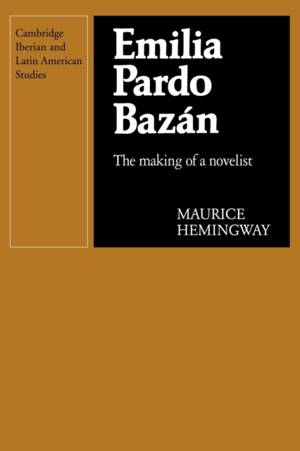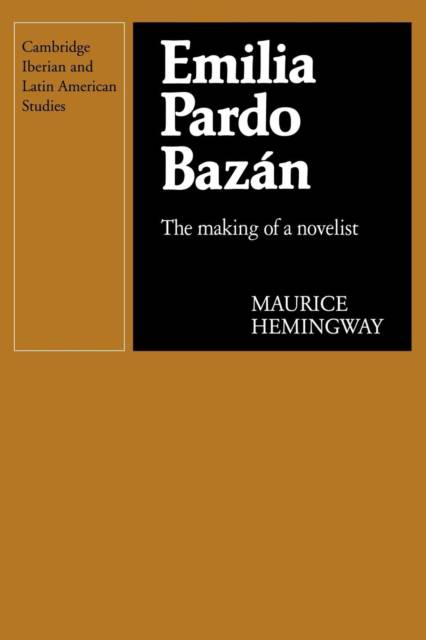
Bedankt voor het vertrouwen het afgelopen jaar! Om jou te bedanken bieden we GRATIS verzending (in België) aan op alles gedurende de hele maand januari.
- Afhalen na 1 uur in een winkel met voorraad
- In januari gratis thuislevering in België
- Ruim aanbod met 7 miljoen producten
Bedankt voor het vertrouwen het afgelopen jaar! Om jou te bedanken bieden we GRATIS verzending (in België) aan op alles gedurende de hele maand januari.
- Afhalen na 1 uur in een winkel met voorraad
- In januari gratis thuislevering in België
- Ruim aanbod met 7 miljoen producten
Zoeken
Omschrijving
At the end of the nineteenth century Emilia Pardo Bazán was Spain's leading woman novelist and short story writer, and also a critic, journalist and fierce campaigner for women's rights. This book examines Pardo Bazán's growth into maturity as a novelist during the late 1880s and the 1890s. Hemingway argues against the convenient critical division of the author's works into an early 'Naturalist' and later 'spiritual' phase. Concentrating on four novels published during this time the author demonstrates that Pardo Bazán's writing shows an increasing interest in psychology; the ambiguity and irony evident in her treatment of characters' motivation show her a subtle critic of the claims of science to explain human behaviour, illustrated in the work of Zola and his followers. Dr Hemingway stresses Pardo Bazán's originality as a writer, deserving comparison with her compatriot Galdos and with contemporary French and Ruissian novelists. This wider perspective will make the book of interest to students of the European novel generally as well as those is Spanish studies.
Specificaties
Betrokkenen
- Auteur(s):
- Uitgeverij:
Inhoud
- Aantal bladzijden:
- 204
- Taal:
- Engels
- Reeks:
Eigenschappen
- Productcode (EAN):
- 9780521121590
- Verschijningsdatum:
- 29/10/2009
- Uitvoering:
- Paperback
- Formaat:
- Trade paperback (VS)
- Afmetingen:
- 152 mm x 229 mm
- Gewicht:
- 303 g

Alleen bij Standaard Boekhandel
+ 129 punten op je klantenkaart van Standaard Boekhandel
Beoordelingen
We publiceren alleen reviews die voldoen aan de voorwaarden voor reviews. Bekijk onze voorwaarden voor reviews.









